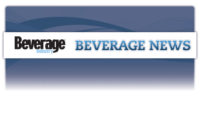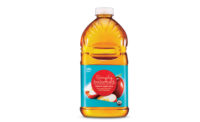![]()
Retailers Push Private Label
Retail consolidation, not necessarily consumer economics, is
driving the growth in private label foods, according to a TradeSmart workshop
conducted by Hoyt & Co., Scottsdale, Ariz. Hoyt points out that the growth of
private label accelerated during the strong economy of the 1990s, which runs
counter to the belief that store brands are tied to poor economic conditions.
In addition, private label penetration increased most for households considered
“comfortable/affluent” and also was strong in “professional/ white collar” households
and homes without children.
The true reason for private label success seems to be consolidation
among retailers, and many retailers see it as a way to differentiate themselves
from the competition. To illustrate that theory, Switzerland, in which 88 percent
of the market is held by the top five retailers, also has the most private label,
at 38 percent of the total market. In Great Britain, 83 percent of the market
is held by the top five retailers and has a 31 percent private label share.
The United States has a relatively low private label incidence at 15 percent
market share, which is reflected in its comparatively low rate of consolidation.
But private label is growing in the United States.
Store brands are now present in 280 of the 289 consumer packaged goods
categories. They have 100 percent household penetration and the average
shopper now buys private label products about 70 times per year.
According to Hoyt, the retailer’s argument for
private label is strong as private label retailers are more profitable;
their gross margins on store brands are 40 to 42 percent higher than
national brands; they offer lower overall prices to consumers, which drives
sales; and they escape simple basket price comparisons with discounters and
supercenters. In fact, Hoyt argues, one of the reasons for mergers and
acquisitions during the past few years has been retailers’ belief
that they could grow the private label market share of the company they
want to acquire.
What does that mean for branded products? There are categories
in which private label has not been able to break the branded product hold,
including carbonated soft drinks, snacks, cereal, cookies and pet foods. Branded
products are more successful in those categories because they offer heavy manufacturer
advertising, consistent innovation, manufacturer brand concentration in the
category, price gap management and direct store distribution, which gives the
manufacturer more in-store control. For branded products, the best defense against
private label, says Hoyt, is to build brand equity, invest in R&D to continually
improve products, improve production efficiencies, become a hassle-free supplier
and share information in category management presentations.
For more details, log on to hoytnet.com, or contact Chris
Hoyt at 480/513-0547.



